Berlin Film Festival 2016: Inhebbek Hedi – a chat with director Mohammed Ben Attia
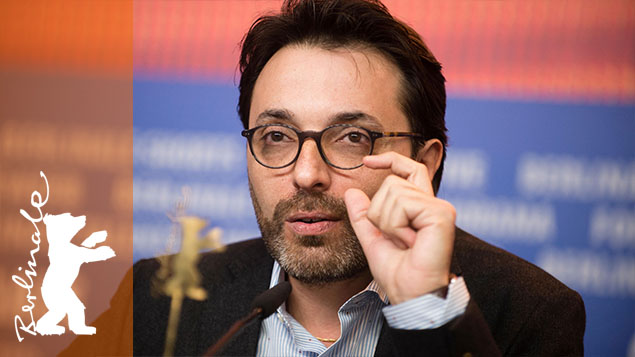
Mohammed Ben Attia is a Tunisian director who has made a name for himself in the cultural upheaval of the Arab Spring for his understated shorts. His first feature length, Inhebbek Hedi, tells the story of an aimless young man who defies the convention of his arranged marriage to pursue an illegitimate romance with an older, free-spirited woman. It is the first Arabic film to be in the competition for the Berlinale in 20 years and we gave it 4 stars.
Four years since the Arab Spring, and the situation seems to be the same – your film seems to confirm that. Do you agree? What do you think went wrong?
Thank you for asking this question, I’m glad to get right into it. When you make a film, you set out with a certain number of intentions but are always afraid to be misunderstood or to miss the mark you wanted to hit. I don’t think my film is pessimistic, in my opinion it is optimistic and open. I can’t say that nothing has changed in Tunisia. The most radical change has been the freedom of expression that we have earned that did not exist four years ago. Now, in regards to the economical and political point of view, it is true that development has stagnated. The regions that were at the centre of the revolution, because they were under-developed, are even worse off now. But in regards to cinema, there has only been progress.
I don’t think the ending or Hedi’s decision to stay in Tunisia is a sign of cowardice or a sign that he will go back to his bride-to-be or his mother. It’s the opposite, it’s his decision. He went on a journey of self discovery to learn his limitations and his desires. He has a very open look on the future of his country.
What was the initial spark for the project?
The initial desire was to tell the story of a banal character who doesn’t necessarily have huge conflict in his life. Even Sabah Bouzouita (who played the mother) had trouble understanding Hedi. She would tell me “I don’t get what his problem is? His life is pretty ideal, his bride-to-be is beautiful and devoted. Why is he fighting?”. Behind this malaise, there is a desire to be independent, to make a choice that most people can identify with.
Your film challenges and questions a traditional way of life, and you’ve mentioned before how Tunisian film has been allowed a newfound freedom of expression. Did you encounter any form of censorship during production?
Not at all. Also, it is important to mention that even under the regime of Ben Ali, this freedom existed, there was only one film that was censored. You could show love scenes, party scenes, women drinking alcohol. The only censorship that existed was strictly political: the government were defensive of films that explicitly critiqued the regime. This was the greatest restriction before the Arab Spring because we could not openly attack the government. This was one of the reasons I was compelled to show the couple in a passionate sex scene. Despite the absence of censorship, there was still a public refusal of depicting sex and nudity in films because more often or not it was portrayed negatively or as an act of violence, whether it be rape or incest. I wanted to change the public perception of sex in a positive way. Remind the audience that it could be simple, beautiful and respectful .
Hedi isn’t just a love story, but also a story about family. What is the state of the idea of family in Tunisia today and do you think liberation from traditional norms helps or harms that?
Family is a subject that is very close to my heart and is at the centre of this story. In Tunisia, the family is a very self-protected unit, much like the mafia. I have had friends visit me from abroad and have trouble being accepted by my family and other families. If we are born into it we are accepted for life. We are over-protective to a point where it can be suffocating. It is very common to still live with your family up until the age of 35. People are expected to move from their family home into the home they have created without a gap in between, there is no transition. It is very rare to hear of two young people falling in love and moving in together without getting married. The family doesn’t encourage it, be it the mother or the father. Starting a family is like starting a company. Once the father feels like it is your turn to take over the helm, you have very little choice.
I understand the film was co-produced by the Dardennes brothers. What role did they play in the production and how did you first make contact?
It was initially my producer who reached out to them because she saw a lot of things they liked in the script and knew that they co-produce a couple of films a year through their company Films de la Fleuve. I admit that I had always been a fan, but not to the point of wanting to imitate, and I must say I am not a fan of their entire filmography either [chuckles]. I have a lot of respect for them and obviously all directors are influenced by what they watch, especially on a subconscious level. They liked the simplicity and realism of the story. They were interested in the political situation but wanted something that focused on the day-to-day lives of ordinary people.
I sensed a potential oedipal theme between Hedi and Rim. He abandons his timid and passive bride-to-be for a strong-willed, opinionated woman much like his mother.
Yes, indeed. There were even scenes that we had to cut where I implied that Hedi notices certain details and starts to become anxious about his new romance and the threat of being suffocated by a new mother figure. She is older than him, more self-aware and independent. The bride in the arranged marriage is her polar opposite, she is passive and allows herself to be led along. When he confronts her about why she’s sending romantic messages but she wont let him kiss her, she simply answers: “That’s the way I was raised”.
Finally, we were curious about the title of the film – it’s written a couple of different ways. Could you maybe explain it with a rough translation.
Of course. It is a play on words in Tunisian Arabic. Inhebbek Hedi means “I love you Hedi”, but it can also have a double meaning when we put the stress on the hebbe. It becomes “be quiet”. But it only works in Arabic!
Sean Gallen
Read our review of Inhebbek Hedi here.
Read more of our reviews and interviews from the festival here.
For further information about Berlin Film Festival 2016 visit here.


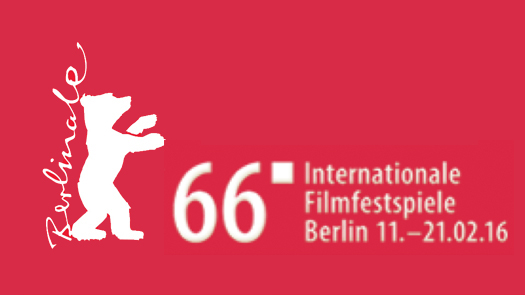











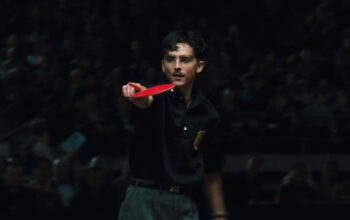





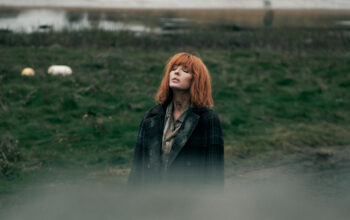


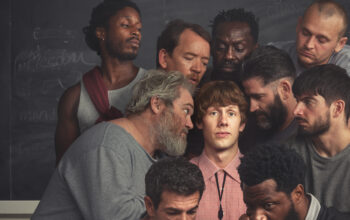
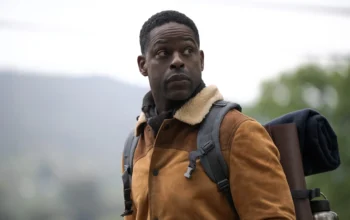

Facebook
Twitter
Instagram
YouTube
RSS